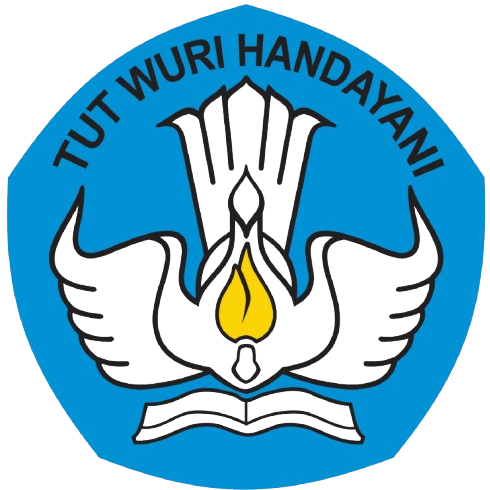Festival Pendidikan Solok: Bridging the Gap between Tradition and Modern Education
Festival Pendidikan Solok: Bridging the Gap between Tradition and Modern Education
In the heart of West Sumatra, Indonesia, the Festival Pendidikan Solok stands as a beacon of educational innovation. This annual event aims to enhance the educational landscape while celebrating the rich cultural heritage of the region. The festival showcases a unique blend of traditional practices and modern educational methodologies, bringing together students, educators, and community members in a vibrant and engaging atmosphere.
Historical Context
The roots of the Festival Pendidikan Solok can be traced back to the early 2000s, emerging as a response to the pressing need for educational reform in Indonesia. With a diverse population and a rich historical backdrop, Solok serves as an ideal location for such a transformative initiative. The festival has evolved over the years, increasingly focusing on integrating local culture with contemporary educational practices.
Objectives of the Festival
One of the primary objectives of the Festival Pendidikan Solok is to promote inclusive education. The festival aims to provide equal opportunities for all students, regardless of their socioeconomic background. Moreover, it seeks to foster collaboration between various stakeholders in the education sector, including government institutions, NGOs, and local communities.
Additionally, the festival strives to instill an appreciation for local culture among young learners. By incorporating traditional elements into modern education, the festival helps preserve the region’s identity while simultaneously preparing students for a globalized world.
Key Features of the Festival
The Festival Pendidikan Solok is characterized by several features that set it apart from conventional educational gatherings. Here’s an in-depth look at some of the highlights:
-
Cultural Exhibitions
The festival hosts a wide array of cultural exhibitions that spotlight the region’s unique heritage. Local artisans, craftsmen, and performers showcase their talents in traditional dance, music, and art, thus enriching the educational experience with cultural relevance. This interplay of culture and education engages students and instills pride in their heritage. -
Workshops and Seminars
Educators and experts from various fields conduct workshops and seminars designed to address contemporary educational challenges. Topics often include innovative teaching methods, environmental sustainability, and digital literacy. These sessions aim to equip teachers with new skills and strategies, fostering an environment that emphasizes lifelong learning. -
Interactive Learning Stations
The festival features multiple interactive learning stations where students can engage with hands-on activities. These stations cover subjects ranging from science and technology to arts and crafts. By promoting experiential learning, the festival caters to diverse learning styles and encourages creativity among participants. -
Showcases of Student Projects
Student-led projects are a crucial component of the festival, allowing young learners to present their work to a broader audience. These showcases not only emphasize academic achievements but also highlight problem-solving skills and teamwork. The projects are often rooted in local issues, encouraging students to apply their knowledge to real-world challenges. -
Collaboration with Local Businesses
Another significant feature of the festival is its collaboration with local businesses and industries. Partnerships with local entrepreneurs create opportunities for practical learning and career exploration. Students are encouraged to engage with business owners to understand the demands of the job market and entrepreneurial practices. -
Culinary Events
The culinary segment of the festival presents traditional Minangkabau cuisine, allowing attendees to experience the area’s culinary diversity. Cooking demonstrations and tasting sessions are organized, linking food culture with educational themes such as nutrition and sustainable agriculture.
Impact on Local Education
The Festival Pendidikan Solok has had a transformative impact on the local education landscape. Through its initiatives, the festival has successfully inspired a rethinking of educational priorities. Schools in the region increasingly emphasize collaborative learning, creativity, and cultural appreciation, driven by the insights gained during the festival.
For students, the festival serves as a catalyst for motivation. The vibrant atmosphere fosters a love for learning, inspiring them to pursue academic excellence. The involvement of parents and community members further reinforces the importance of education, creating a holistic support system for learners.
Challenges and Opportunities
Despite its successes, the Festival Pendidikan Solok faces challenges. Securing funding and resources is one of the most pressing issues, as sustainable growth of the festival requires financial backing. Additionally, the integration of modern educational practices with traditional values requires careful balancing, ensuring that neither is compromised.
However, these challenges also present opportunities. By engaging with local governments, businesses, and NGOs, the festival can expand its reach and impact. Moreover, the rise of digital technology can facilitate virtual components of the festival, allowing broader participation and resource sharing.
Future Prospects
The future of the Festival Pendidikan Solok looks promising. Plans are underway to enhance its reach, inviting more international participants and fostering cross-cultural exchanges. The incorporation of digital platforms can lead to an even more dynamic interaction among educators, students, and community members.
Moreover, continuous feedback from participants can lead to the evolution of the festival’s objectives, ensuring they remain relevant to the changing educational landscape. As it stands, the Festival Pendidikan Solok is not merely an event but a movement towards a more integrated and culturally rich educational framework.
Final Thoughts
As the Festival Pendidikan Solok continues to evolve, it stands testament to the power of education as a bridge between tradition and modernity. By celebrating cultural heritage while embracing contemporary educational practices, the festival offers a holistic approach to learning that can serve as a model for other regions looking to enhance their educational paradigms. Through its commitment to inclusivity and community engagement, the festival embodies the essence of what education can achieve: a cohesive, informed, and culturally aware society.
